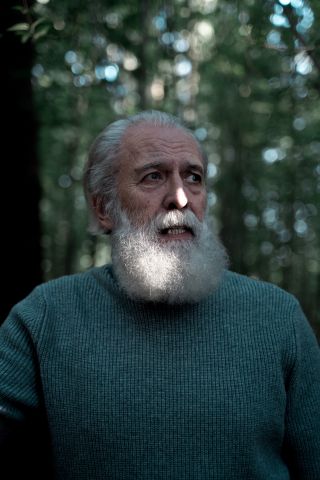Career
What the Jewish Rip Van Winkle Can Teach Us About AI
Personal Perspective: To make tech work meaningful, partner with the dreamers.
Updated July 6, 2023 Reviewed by Ray Parker
Key points
- Big Tech wants to hide the story of all the people being exploited as they build the future.
- Human progress always relied on dreamers who knew the fruits of their labour will only be enjoyed by others.
- While meaningful work involves doing our part for the future, being recognized for our contributions is key.

A brilliant just-published expose on the exploited people working tirelessly for $2-$3 an hour to create an illusion of automation at AI companies was heartbreaking on many levels. New York Magazine and The Verge collaborated to tell the story of what work looks and feels like for human beings operating without defined schedules, colleagues, or even the simple knowledge of what they were working on or who they were working for.
Billion-dollar corporate behemoths wanted to hide their identity to protect their reputations from word getting out about the appallingly low wages and working conditions their “cutting edge” technology is being built on. Many of those being taken advantage of were lured in under the promise of meaningful work.
One person interviewed describes himself as a “fanatic about AI,” who took the job to help create a fully automated post-work future. He thought he would be remembered as a pioneer for the work he did. He now sees that few people will ever be aware of the effort he and his colleagues put in under extraordinarily oppressive conditions.
The Work of Dreamers
Reading about the plight of this anonymous techno-underclass made me think of a fantastical story shared in the Talmud. The tale centers on Choni ha-M’agel, a sage living in the first century B.C.E., whose surname refers to his mythical talent for changing the weather by drawing a circle in the sand (his name literally means circle drawer), standing in the middle, and asserting to the heavens that he would not leave that spot until an appropriate amount of rain had begun to fall.
As a scholar, Choni had spent his entire life troubled by how to decode a particularly oblique passage in the Psalms (126:1), composed as a celebratory song commemorating the return to Jerusalem after a 70-year exile instigated by the Babylonian siege. It states that upon returning to Zion, “we were like dreamers.” Why would the psalmists describe the time that has passed as feeling like nothing more than a dream?
One day Choni was traveling along a road. He stopped to observe a local man hard at work planting what would turn out to be a carob tree. Choni asks the planter how long it would take for this tree to bear fruit. He is told that it would be 70 years. He then asks the planter if it was his hope to still be alive 70 years down the road, the only way he would be able to enjoy the literal fruits of this effort. The planter calmly explained to Choni that he had already been blessed.
He had found, and enjoyed, fully grown carob trees on his familial property during his lifetime. His grandparents at one time engaged in an act of generosity for their future descendants. And so, in a similar spirit, this planter was now fulfilling his own responsibility to the future. He was doing the work the children of his children would profit from.

Choni didn’t get it. This was an individual who drew circles, stood stubbornly within them, and demanded rain from the heavens—and had his ultimatums answered. He was the opposite of a dreamer. So Choni would have to dream. He sat down to have a meal, weathered by this confusing exchange, and fell asleep. A rocky formation enclosed him, and he slept for 70 years.
When he awoke, he saw the grandson of the planter joyfully harvesting the carobs. The dream of the grandfather had been realized. Choni had to see it to believe it. Now heading to the academy after awakening, he hears scholars referencing his name as an intellectual authority. But when he announces who he was, that he had returned to continue his work, nobody believed him.
The Time for Partnering Is Now
Meaningful work means doing our part for the future and being recognized for our contributions at the right time. Choni’s profound final realization was that his part in the narrative of being and doing was done. The next generation was doing their work. They were meant to build on his efforts, but not build with him. Thus, there was no meaningful work left for him.
Big tech is choosing to build a future that hides the contributions of workers toiling behind the scenes and hides the identities of the artists and writers whose work was scraped for training their models, but not credited. These companies are suppressing the knowledge of all the human effort to make their product appear more magical and dream-like. This is a mistake.
The output of meaningful work is meant to last long into the future. There is still a chance for tech companies to do things differently. To build in partnership with the dreamers. To make tech work meaningful work. They certainly have the financial means to do so. But the clock is ticking.
References
Weitzner, D. 2021. Connected Capitalism. Toronto: University of Toronto Press.




